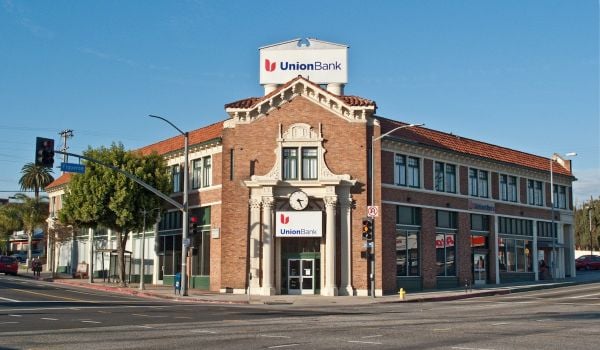It’s a form of the prisoner’s dilemma: If every business decides in unison to offer paid leave to every employee, everyone will be better off, but if one business decides and the others don’t, that business risks losing out competitively to the others. So, not wanting to take that risk, even if most business owners believe paid leave is the right thing to do, many employees still don’t get paid leave.
Of course, many workers do get paid sick leave or paid family leave. In a pattern you might expect, 83 percent of the highest 25 percent of earners get paid sick leave, while only 33 percent of the lowest 25 percent of earners have access to paid sick leave, according to the Bureau of Labor Statistics.
The risk of offering paid sick leave is biggest for small businesses, juggling often razor-thin profit margins already. Among businesses with more than 500 employees, 80 percent of workers had access to paid sick leave, compared with 52 percent in businesses with fewer than 100 employees.
So if you’re a low-wage worker for a small business, odds are getting sick or having a child means going without pay. And here’s where I’ll insert my version of the obligatory statement: The U.S. is the only major industrialized nation that does not mandate paid leave for health or family reasons. Only such a public mandate can get all businesses past this version of the prisoner’s dilemma.
President Barack Obama recently called for federal paid parental and sick leave legislation in his final State of the Union. The president previously gave significant momentum to the cause by issuing an executive order requiring federal contractors to provide paid sick leave. Hillary Clinton recently unveiled her plan to offer paid family leave for all workers, a plan that got attention for having funding come from a tax on the wealthy. Marco Rubio even has a proposal to provide a tax incentive to businesses that offer paid family leave.
At the city and state level, progress has come in fits and starts. Pittsburgh passed a paid sick leave bill in stunning fashion last year, taking only months from conception to bill signing, only to have that ordinance struck down last month. Here’s a quick roundup of what’s happening on the paid leave front in some of the nation’s largest cities.
New York City
Mayor Bill de Blasio made headlines last month by announcing an executive order to give the city’s 20,000 non-union workers six weeks of paid parental leave. It’s among the most generous municipal family leave policies in the nation, according to The New York Times. Notably, the city’s 300,000 unionized workers will not be affected by the order. They will have to wait until their union contracts come up for renegotiation. (The city’s paid sick leave law went into effect in April 2014.)
Meanwhile, New York Governor Andrew Cuomo, who said last March there was “little appetite” for paid family leave legislation on a statewide level, expressed an emotional change of heart in his state of the state of address this month. He’s now seeking support for a plan to mandate up to 12 weeks of paid family leave for workers across the state.
Los Angeles
California is one of three states, along with New Jersey and Rhode Island, to have passed a statewide paid family leave law. Around 1.5 million paid family leave claims for new parents were paid as of FY2014, at an average weekly benefit amount of $551 per claim. According to research compiled by the National Partnership for Women & Families, “California families have experienced positive economic and health effects, and the vast majority of California employers perceive a positive impact on employee productivity, profitability and performance, or no effect.”
Chicago
Mayor Rahm Emanuel, in the midst of barely squeaking out a win in a run-off election against a more progressive opponent, announced in March 2015 his intention to form a “Working Families Working Group,” which would among other things study the possibility of mandating paid family leave and paid sick leave for all Chicago employers. Advocates expected a report back to the mayor from the working group last fall, but there have been no reports or announcements of the members of the group or an official timeline for their work.
In the first round of the mayoral election, last February, 82 percent of Chicago voters supported a non-binding referendum asking whether workers in Chicago should have the right to paid sick days.
Philadelphia
Philadelphia’s paid sick leave law went into effect last May, and was expected to benefit around 200,000 workers in the city of 1.5 million residents. Former Mayor Michael Nutter had vetoed paid sick leave bills in 2011 and 2013, citing economic conditions as being too precarious for such a drastic change, but advocates pressed on. At the bill signing, Nutter claimed to have never opposed paid sick leave in principal.
Phoenix
Business groups in Phoenix are closely watching their neighbors in Tempe, as local legislators discuss the possibility of a paid sick leave ordinance. Tempe would be the first Arizona city to do so.
Spokane
Congratulations to the first city to pass a (less than perfect) paid sick leave ordinance in 2016: Spokane, Washington. Workers will get an hour of sick time for every 30 hours they put it in on the job, but will be limited to using only three days a year. According to KXLY news, one public commenter at the council hearing predicted businesses could flee the city in response, while a supporter of the move said, “Five days of paid leave is a small price to pay for happier, healthier employees.”

Oscar is Next City's senior economic justice correspondent. He previously served as Next City’s editor from 2018-2019, and was a Next City Equitable Cities Fellow from 2015-2016. Since 2011, Oscar has covered community development finance, community banking, impact investing, economic development, housing and more for media outlets such as Shelterforce, B Magazine, Impact Alpha and Fast Company.
Follow Oscar .(JavaScript must be enabled to view this email address)
















